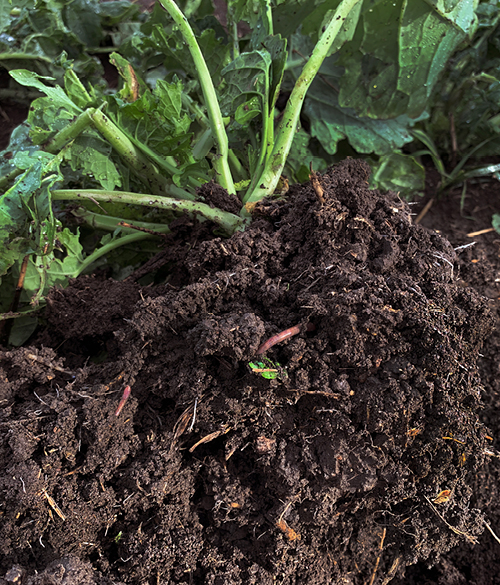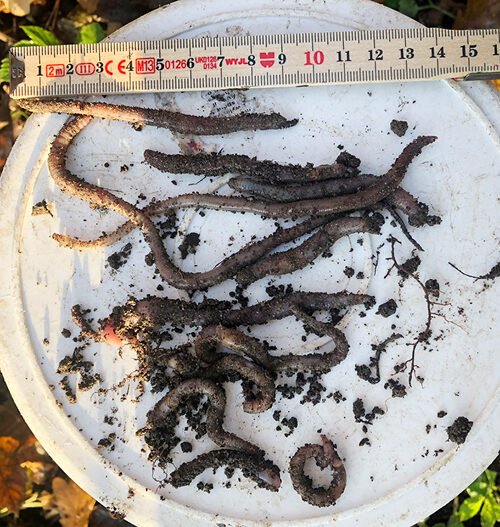Why we feed microbiology
Soil microbiology plays an essential role in decomposing organic matter, cycling nutrients that would otherwise not be available and fertilising the soil. In order to do so, they need food, water and oxygen, just like us.
We provide food for the soil microbiology by ensuring a healthy soil structure with space for air and water. Reduced tillage attracts bacteria, fungi and earthworms. The soil microbes stabilise the soil with their branch structure and by producing substances that glue the soil aggregates together. Also, earthworms create tunnels through the soil. Together these ensure space for oxygen under- neath the surface and makes the soil work like a sponge that holds the water longer.
Food is provided by having a permanent plant cover on our fields. This ensures that there is always plant roots in the soil on which helpful fungi can attach and initiate a beneficial relationship with the plant. The fungi help the plant by providing nutrients and the plant releases sugars to the fungi through the roots, practically feeding all the microorganisms beneath them.
Without soil microbes, essential nutrients would rapidly be locked in a form that cannot be used by others and the continuation of life would be impossible. Therefore, we strive for a wide array of crops and cover crops, in order to increase the diversity of our soil microorganisms and ensuring that we can provide them with what they need, food, water and oxygen.





